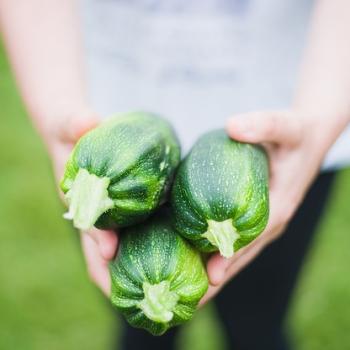
On Friday, Rosie got her first COVID-19 inoculation.
We drove down to the health department the long way, past a bright orange riot of late fall trees. I was babbling, as grown-ups do, promising Rosie it would be over quickly. “Just a quick shot, then we’ll go get French fries. And you can tell your grandchildren you survived the pandemic.”
We went into the health department, up to the sixth floor. I filled out the form with trepidation, even though I was excited. Mothers worry about everything. But there wasn’t much time to worry. They called us back to the nurse’s room at once. “Immunity by Christmas,” I kept telling Rosie. Immunity by Christmas. Back to martial arts. Soccer tryouts in January. Track and field in the Spring. Indoor play dates. Back to the old normal.
Well, there was never really a normal.
This wasn’t the life I meant for Rosie.
I thought we’d be out of Steubenville and in a pleasant suburb somewhere when she was still an infant. I would bake cookies and make crafts and have five or six other children. We’d have playdates with well-behaved middle class families, go to Mass in a church that liked us, and everything would be fine. Looking back, I don’t even know why I thought that would happen. So many Millennials were raised to think that going to college means you will get a good job and be middle or upper class, instead of being poor like those who don’t go to college. I suppose I just assumed it would come true. But, of course, it didn’t. We were trapped in that nightmare slum apartment on one of the worst blocks in LaBelle: the one across an alley from one of the nicest blocks and cat-a-corner to another. I could stand in my backyard and look up into the windows of pretty houses where people lived comfortably, and then go find needles and condoms in our alley.
My first week at the university, the student driving me to class waved his hand out the window to illustrate how the poverty and squalor went block by block in Steubenville: “Ghetto ghetto ghetto ghetto ghetto RITZ ghetto RITZ ghetto RITZ.” And that’s still the best description I have of how the blocks work around here. Our block wasn’t Ritz.
I still don’t know what makes neighborhoods like that: block by block, one pleasant and one apocalyptic. I just know that it happens.
We stayed in the apartment for three years. Then we stayed in a nicer, furnished house on another block for eight months, before the landlord rented the house to an order of nuns who had come to Franciscan University for summer session, and we scrambled to find a new place.
Then we ended up in this house, going on seven years now, thanks to help from family and friends. It wasn’t furnished so we salvaged things from bulk trash pickup. Rosie grew up used to broken furniture, used to walking or taking the bus everywhere, used to having to come in from playing and hide when the menacing neighbor came out and started screaming at her voices, used to the occasional gunshot at night. She got used to us trying to fit in with the libertarian conservative Steubenville Catholic set, and being rejected, and making friends with people like the Baker Street Irregulars instead. She helped me bring treats to the Friendship Room free pantry when we could afford it, and walked to the grocery store with us to spend our EBT benefits when we didn’t have anything else. The free Bible club at the church downtown. Discount martial arts lessons to overcome her social anxiety and help with the neighborhood bullies. A class called “Junior Ninja” where she ran through an obstacle course. Tumbling. Swimming at the tiny local pool in the summer.
And then the pandemic. Lessons canceled. The pool closed. Losing most contact with most of her friends. Going for long walks at Beatty Park. Taking that hand cart of canned goods down to the Friendship Room to keep the desperate people fed again and again and again. The promise that someday, somehow, things would go back to normal. Her normal, that is. They’d never go back to my notion of normal.
Early in 2021, we got our first family car. And we’ve been spending the summer swimming in the State Park and going for drives around the Valley to pass the time.
Which brings me back to Friday, when the nurse brought the needle in and gave Rosie her first COVID shot. Rosie didn’t even flinch at the injection, though she was less than enthusiastic about the babyish Snoopy bandage.
I thanked the nurse profusely, we waited our requisite fifteen minutes, and we were off.
Nothing is ever going to be normal.
Nothing will ever look the way I imagined it would.
Still, it’s nice to have this particular obstacle nearly over with.
Maybe next year will be fun. You never know.
We drove home, not to the home I imagined for us but back to LaBelle, in the bright November afternoon.
Image via Pixabay
Mary Pezzulo is the author of Meditations on the Way of the Cross and Stumbling into Grace: How We Meet God in Tiny Works of Mercy.
Steel Magnificat operates almost entirely on tips. To tip the author, visit our donate page.













